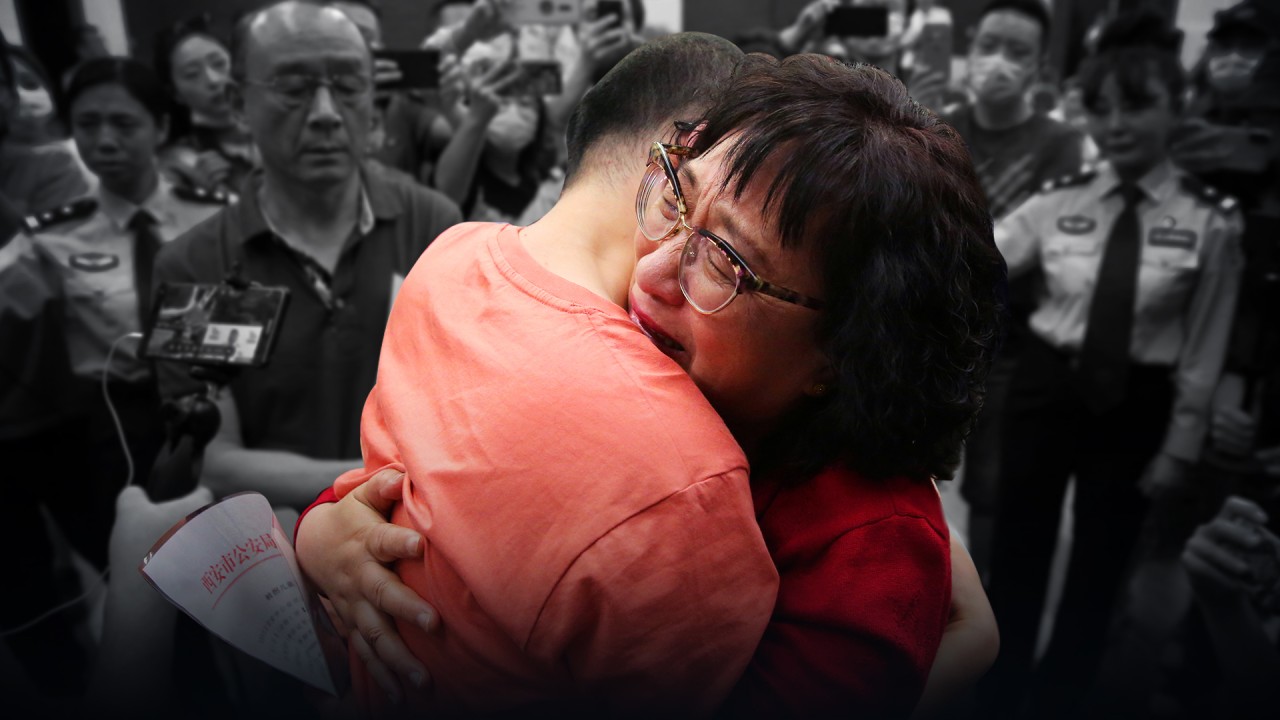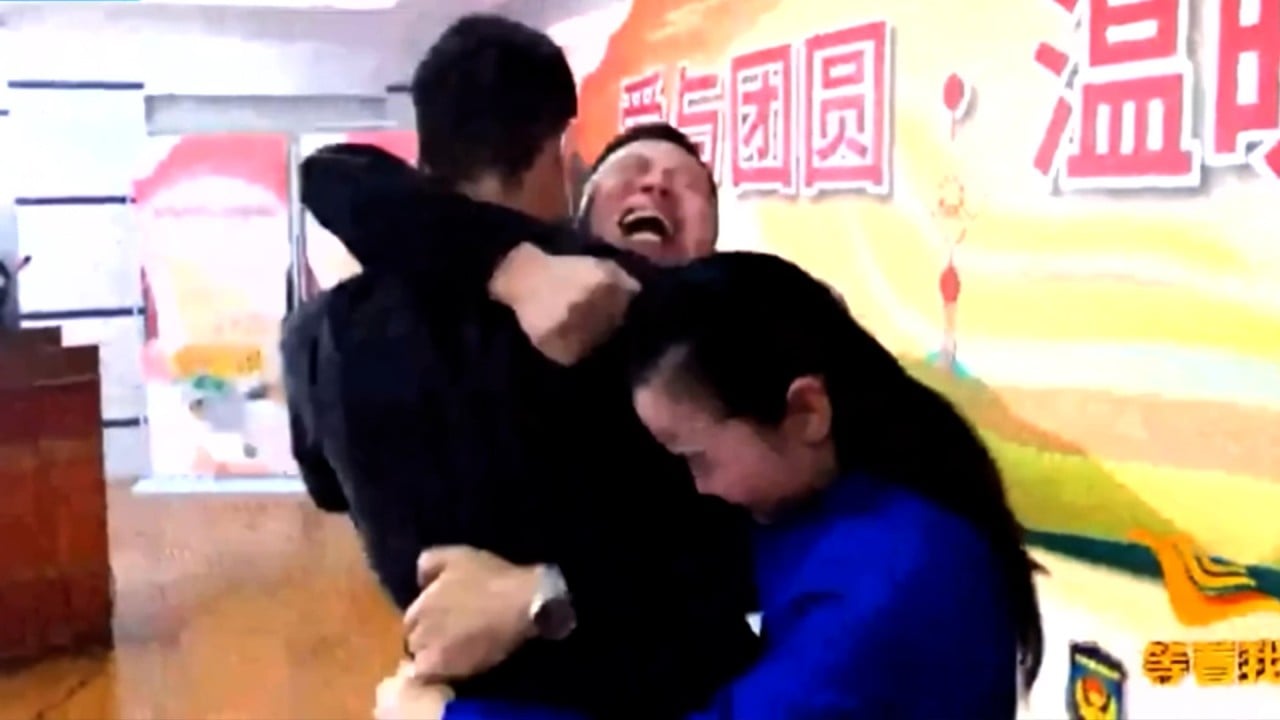The couple took buses to neighbouring towns, gave money to people who called in with possible leads, and offered a million yuan (US$140,000) cash reward for anyone who could help them track their son.
Shortly after police reports of the reunion became public, AI start-up Beijing DeepGlint Technology said its algorithm had been behind the young man’s return. DeepGlint declined to be interviewed by the South China Morning Post.
In a post on social media platform Weibo on Monday, the company said Xie was the fourth child it had helped authorities to find in the past six months, using an algorithm that compared faces across ages and matched anyone who might be related.
“We hope to help society and individuals solve actual problems with AI technology and make the world a better place,” it said.
Rampant child abductions and cases of missing children in recent years have prompted authorities in China to cooperate with AI companies, letting them tap into police databases to train different AI models.
The kidnappings have often been blamed on the cultural preference for sons, with couples only allowed to have one child under a now-abandoned state policy. It led many to buy children on the black market.
It is unclear how many children have been found, but there has been a stream of reports over the years of cooperation between police and AI firms leading to abduction victims being reunited with their families.
According to Jason Liu, a Shanghai-based developer who works with AI and robotics, the technology itself is simple and has been around for a few years.
An AI model calculates facial characteristics – such as eye size or height of cheekbones – and compares potential relatives for resemblances. The higher the score, the stronger the possibility of being related, Liu said.
“The only drawback of the technology is not having enough data. As long as they tap into the police database, they should have no problem [training the AI model],” he said.
Reports of Xie’s reunion with his parents sparked feverish discussion on Weibo, with many commenters hopeful that the technology could help to find their own missing relatives.
“My older brother went missing 17 years ago. How do I contact someone with this technology?” was one of many similar comments on the platform last week.
While some wondered whether the technology could be used to track down fugitives or benefit the broader public in some way, others questioned the use of AI citing an invasion of privacy. Their voices were drowned out by those in support of the technology.
“They have spent all their money looking for their lost children, would they care about privacy?” one said.
“But other people care about the infringement of their privacy,” another argued.
‘Kinship is irreplaceable’: Chinese mother enlists help of abductor to find son
‘Kinship is irreplaceable’: Chinese mother enlists help of abductor to find son
Experts who have cautioned about ethical and legal issues that must be discussed include Zeng Liaoyuan, an associate professor at the University of Electronic Science and Technology of China.
Zeng cautioned against the frequent use of facial recognition on a massive scale, saying it concerned not only technical challenges, but also sensitive information such as genetics.
“It is unclear at the moment [in Xie’s case], whether the company only used photos to find a match, or did they also use police data concerning personal identities, but that would concern personal privacy,” he said.
Zeng pointed out that in other countries, there were few public applications of AI or companies advertising the use of AI models to match people with relatives because of the privacy issue.
He cautioned against using such tools without first having a discussion about the ethical, legal and privacy angles.
“For this family, this is a good application, but if we look at it from a broader level, when we have such technical ability, is it a good tool for the entire society? Can we make sure it can be used in a good way?”
According to media reports, Tencent’s AI lab YouTu worked with Sichuan police in 2017 to train an AI model to generate an image of what missing children might look like after 10 years.
When they tapped into the millions of pieces of police data for the first time, the model matched four out of the 10 missing children they were searching for, all of whom had been abducted a decade earlier.
Search engine Baidu also developed a programme in 2016 to tap into the missing persons database of the Ministry of Civil Affairs.
If people spot elderly persons who might be lost or children they suspect might have been kidnapped, they can upload their pictures on to Baidu, which then instantly compares them with the ministry’s registry of missing persons. They can then find out the identity details of the possible match and ways to contact the families.

Eugen Boglaru is an AI aficionado covering the fascinating and rapidly advancing field of Artificial Intelligence. From machine learning breakthroughs to ethical considerations, Eugen provides readers with a deep dive into the world of AI, demystifying complex concepts and exploring the transformative impact of intelligent technologies.




